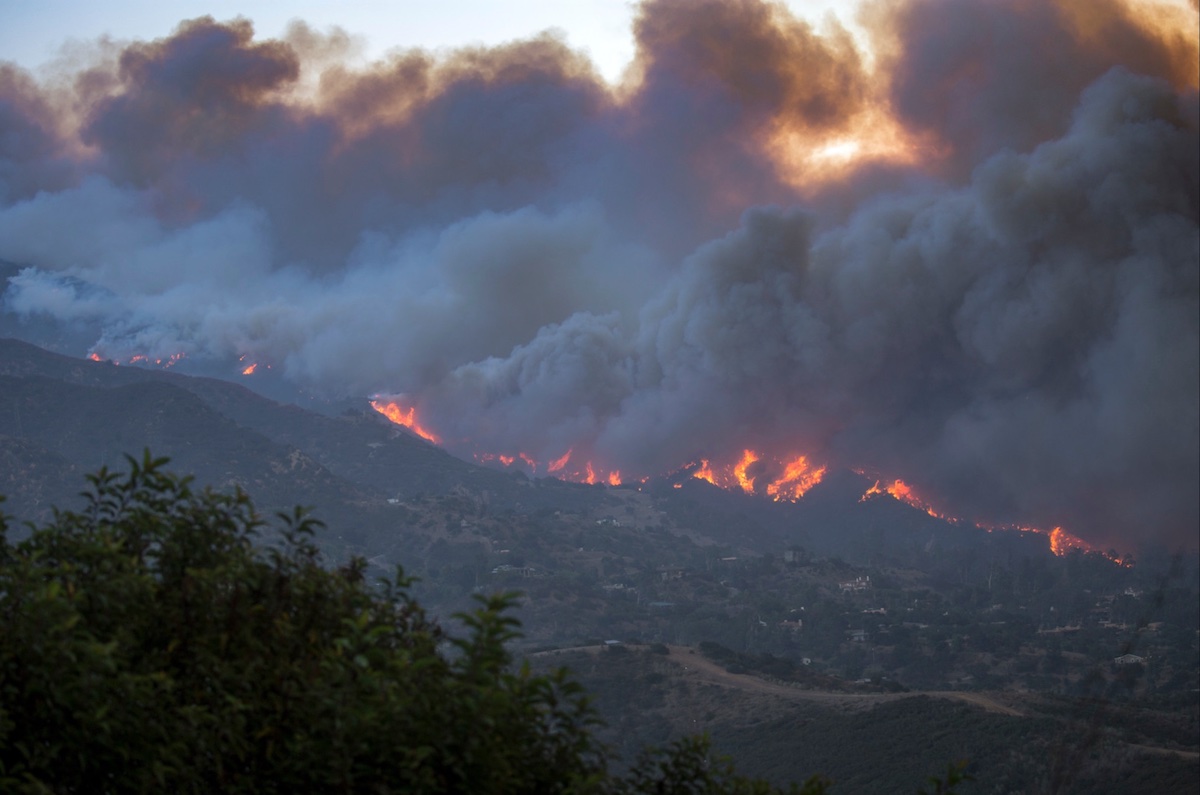Federal Firefighters Get Workplace Protections
Defense Act Includes Access to Disability Benefits

When a giant wildfire breaks out in Santa Barbara County, not only do local firefighters report to the blaze, but crews from all over California and the United States join in. Among them have always been federal firefighters, who until now did not receive the same disability and retirement benefits from what is inarguably a dangerous job.
Last week, President Biden signed the Federal Firefighters Fairness Act, a bill sponsored by Congressmember Salud Carbajal, which acknowledges the serious diseases that firefighters face. “Federal firefighters have been on the front lines in California fighting wildfires as we experience longer and more extreme fire seasons, but their threshold to prove work-related illness is much higher than their state or local counterparts here in California and around the nation,” Congressmember Carbajal said in a press release.
The law allows federal firefighters the presumption that their illness is due to their work, rather than making them prove when and where an exposure occurred in order to qualify for workers comp or disability benefits.
Serious diseases, such as lung and heart disease, certain cancers, and infectious diseases, can follow a firefighter’s summers on a hotshot crew or years of duty. “For decades, occupational illnesses have been medically and scientifically proven to occur at exceptionally higher frequencies among all firefighters across our nation,” said Charlie Martinez, a leader of the union that represents federal firefighters at Vandenberg Space Force Base, International Association of Fire Fighters (IAFF) Local F-116. “I cannot begin to describe the many lives that will be affected by this!”
Sign up for Indy Today to receive fresh news from Independent.com, in your inbox, every morning.
More than 10,000 men and women could see improved benefits from the new rule, the IAFF estimated, and the bill has been on Carbajal’s to-do list since 2017. It was included in the National Defense Authorization Act (NDAA) for fiscal 2023, which the president signed on December 23.
The enormous defense bill — $858 billion compared to $768 billion in 2022 — contained several other provisions that affect wildfires and firefighters. The Emergency Aircraft Bill, sponsored by Senator Alex Padilla, removes the cap on the number of aircraft that states can receive from the Department of Defense for wildfire suppression. Previously, only seven aircraft could be allocated. Their use has been expanded to include search and rescue and emergency operations during a wildfire.
As well, the National Guard’s FireGuard Program was reauthorized to gain federal assistance in detecting and monitoring wildfire, in part through the use of military satellites. The program had required an annual authorization, but Carbajal pushed to have it extended to 2029.
Another provision the NDAA addresses is what are called “forever chemicals,” per- and polyfluoroalkyl substances, or PFAS. These chemicals are used in fire-extinguishing foam for liquid fires, such as at airports and military bases, and they are very long-lived in the environment. The Department of Defense is phasing out military purchases of protective gear containing the chemicals, studying the existing effects on health, putting $1.2 billion toward cleanup at bases, and setting up an award for the inventor of protective gear that does not use PFAS, according to the Environmental Working Group. Manufacturer 3M announced on December 20 that it would stop making PFAS by the end of 2025, stating that “regulatory trends” were a factor in the decision.
Support the Santa Barbara Independent through a long-term or a single contribution.



